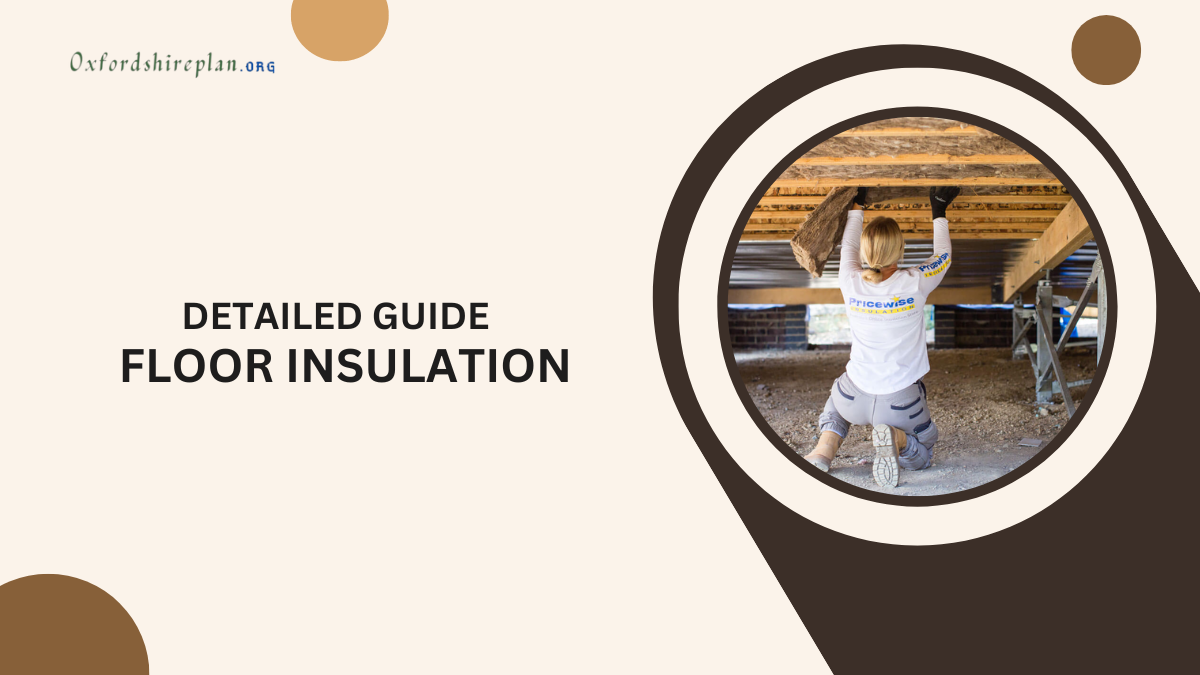Many people overlook floor insulation, a crucial aspect of home improvement. It is not just about keeping your feet warm in the winter; floor insulation plays an important role in reducing energy bills, improving comfort, and making your home more environmentally friendly.
Contents
- Why floor insulation matters?
- Types of floor insulation
- How to install floor insulation?
- Benefits of floor insulation
- When to consider floor insulation?
- FAQs
- How much does floor insulation cost?
- Can I install floor insulation myself?
- How long does floor insulation last?
- Is floor insulation worth the investment?
- Can floor insulation help with noise reduction?
Why floor insulation matters?
When you think about insulation, you might first consider your walls and roof. However, the floors in your home can be a significant source of heat loss, especially if you have uninsulated floors over crawl spaces or basements.
Insulating your floors helps to keep the warm air inside during the winter and the cool air inside during the summer. This means your heating and cooling systems don’t have to work as hard, leading to lower energy bills.
Types of floor insulation
There are different types of floor insulation, each suited to different kinds of homes and needs. Here is a quick look at the most common options:
- Rigid foam boards: These are often used in new constructions or major renovations. They are placed beneath the flooring and provide excellent thermal resistance.
- Fiberglass batts: These are a popular choice for insulating floors above unheated spaces like basements. They’re installed between the floor joists and are relatively easy to handle.
- Spray foam insulation: This type of insulation is sprayed into place and expands to fill gaps. It is great for older homes with irregular spaces or difficult-to-reach areas.
- Reflective insulation: Often used in warmer climates, reflective insulation helps to keep heat out by reflecting it away from the floor. It’s typically installed under the floorboards.
Each type of insulation has its pros and cons, so it is essential to consider your specific needs and consult with a professional to determine the best option for your home.
How to install floor insulation?
Installing floor insulation can be a DIY project, but it is often best to hire a professional, especially if you are dealing with difficult-to-reach areas or want to ensure the best results. Here is a basic outline of the steps involved:
- Know where you need insulation. Is it under the floorboards, in the basement, or over a crawl space?
- Based on your assessment, choose the insulation type that best suits your needs.
- Clear out any debris, seal any gaps, and make sure the area is dry before you start installing the insulation.
- Carefully place the insulation in the designated areas, making sure it fits snugly and covers all necessary spaces.
- After installing the insulation, seal any gaps with caulking or spray foam to ensure no air leaks. Then, finish the floor as needed.
Benefits of floor insulation
There are many benefits to insulating your floors. Here are just a few:
- Proper floor insulation can reduce your heating and cooling costs by keeping your home’s temperature more stable.
- Insulated floors are warmer underfoot in the winter and cooler in the summer, making your home more comfortable.
- Insulation can also help reduce noise between floors, which is especially useful in multi-story homes.
- By reducing your energy consumption, floor insulation helps lower your carbon footprint, making your home more environmentally friendly.
- Energy-efficient homes are in demand, and adding insulation can increase your home’s resale value.
When to consider floor insulation?
If you are experiencing cold floors in the winter, uneven temperatures throughout your home, or high energy bills, it might be time to consider adding floor insulation. Additionally, if you are planning a renovation or building a new home, it is a good idea to include floor insulation in your plans.
FAQs
How much does floor insulation cost?
The cost varies depending on the type of insulation and the size of the area. On average, it can range from $1,000 to $3,000 for professional installation.
Can I install floor insulation myself?
Yes, but it depends on the type of insulation and your DIY skills. Some types, like fiberglass batts, are easier to install than others, like spray foam.
How long does floor insulation last?
Most floor insulation can last 20-30 years or more, especially if installed correctly.
Is floor insulation worth the investment?
Yes. The energy savings and increased comfort often make it a worthwhile investment for homeowners.
Can floor insulation help with noise reduction?
Yes, insulation can help reduce noise between floors, making your home quieter.
Read More:
- What Are Biomass Boilers?
- A Guide To Home Wind Turbines And How They Can Power Your Home
- External Wall Insulation Grants: Save Energy And Reduce Costs
- Free Cavity Wall Insulation Grants: Upgrade Your Home and Maximise Savings
- Economy 7: The Ultimate Guide to economy 7 meters and tariffs

I am a dedicated lifestyle and fashion enthusiast, always looking for the latest trends and timeless styles. With a flair for creativity and a passion for self-expression, I provide fresh insights and tips on elevating everyday living and personal style.
















